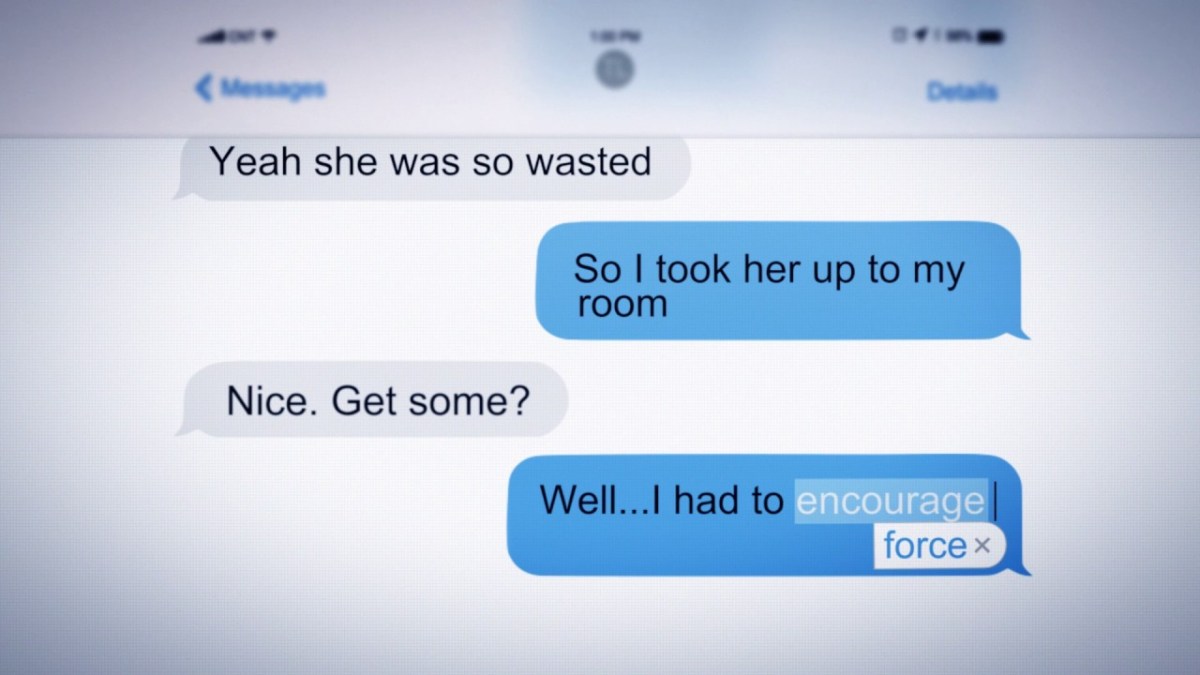This week, a new PSA was released as part of the “It’s On Us” campaign, which encourages everyone to “be part of the solution” to sexual assault, rather than a bystander. And as this video, titled “Autocorrect” points out, being a bystander doesn’t necessarily mean literally, physically standing by and watching something happens. It extends to the complicity of not questioning how a culture that allows rape and sexual assault can be treated so casually.
The video above shows a text conversation between two (presumed) men, rehashing the previous night’s party, but shows the autocorrect that changes the “locker room” bro-talk to more accurately describe what happened.
The PSA gained attention when it was tweeted out by Vice President Joe Biden. He and his wife Dr. Jill Biden, by the way, have launched their Biden Foundation, which is dedicated to issues “from fighting cancer to changing the culture on domestic violence.” (Remember what it was like to have someone in the White House who cared about health, science, and women? That sure was nice.)
The idea that women are solely responsible for preventing their own sexual assault is finally starting to be openly questioned. We still have a long way to go, but acknowledging that there is a culture that allows abuse to happen is a necessary step in ending that abuse. And campaigns like this one, that demand we recognize the often invisible forms that culture takes, go a long way toward that goal.
The fact that there is a man doing the voice over in the ad (John Krasinski, is that you?) is a strong choice, as well. It’s not on men to save women and end rape culture all on their own, but the “us” in the It’s On Us campaign does need to be a real, universal us. This takes everyone, a full cultural shift in the way we think about (and subsequently treat) women.
Words do matter, and the words we use and the perceived meaning inherent to them are in a self-feeding cycle that’s difficult to break. If we treat sexual assault causally, we’ll perceive it as inconsequential. And if we perceive it that way, we’ll never change our language. Not every drunken encounter is rape, but too often, consent is written off as being impractical or mood-killing or whatever other excuse is being used to prioritize men’s fun over women’s safety. This is especially prevalent on college campuses, so conversations like the one in the video are lumped into that vague category of “party culture,” and then swept away for being too messy or too vague or, worst of all, “not real rape.”
We have the ability to change that conversation, but only if we, as the video says, “don’t ignore the subtext” in the way we talk about assault.
(via Mic, images via YouTube)
—The Mary Sue has a strict comment policy that forbids, but is not limited to, personal insults toward anyone, hate speech, and trolling.—
Follow The Mary Sue on Twitter, Facebook, Tumblr, Pinterest, & Google+.










Published: Mar 30, 2017 01:18 pm